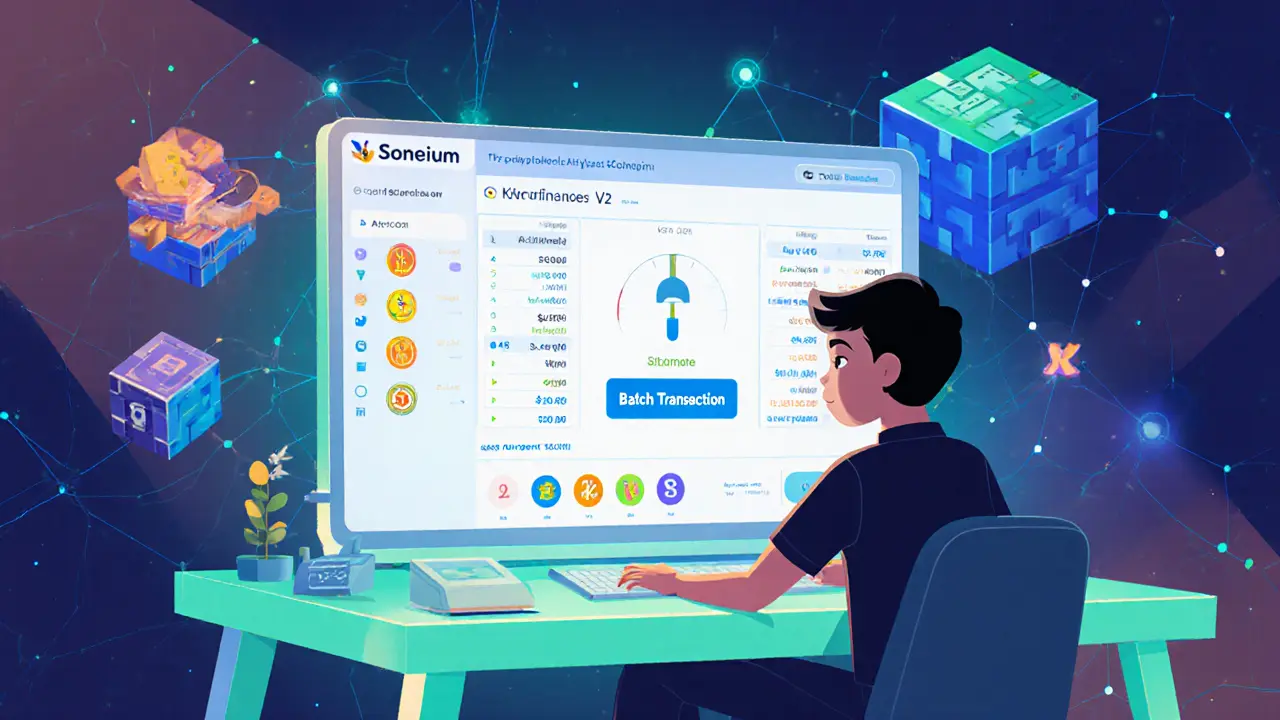Batch Transaction DEX: What It Is and Why It Matters
When working with batch transaction DEX, a decentralized exchange that bundles several trades into a single on‑chain call. Also known as batch‑trade DEX, it helps users slash gas fees and settle orders faster. The concept sits at the intersection of decentralized exchange technology, smart contract automation, and gas fees economics. In plain terms, a batch transaction DEX lets you turn ten tiny swaps into one big swap, so the network only charges you once. This simple idea changes how traders think about cost, speed, and execution risk.
How Batch Transactions Change DeFi Trading
Imagine you want to rebalance a portfolio that holds five different tokens. On a regular DEX you’d send five separate transactions, each paying its own gas price and waiting for separate confirmations. On a batch transaction DEX you submit a single request that contains all five swap instructions. The underlying smart contract parses the batch, runs each swap in order, and writes one final state back to the blockchain. Because the network only sees one transaction, the total gas bill can be 30‑70% lower than doing each swap individually. Lower costs mean smaller accounts can afford to trade, and high‑frequency traders can execute arbitrage loops without getting eaten by fees. The speed boost also reduces slippage; the price you see when the batch starts is the price you get when it finishes, as long as the batch executes within one block.
Not every DEX supports batching, but the ones that do often pair the feature with advanced order types like limit‑orders, stop‑losses, or even multi‑hop routing. Platforms such as Hyperliquid, DEXTools, and some newer aggregators let you build custom batch scripts through a friendly UI or a simple JSON payload. This opens the door to complex strategies: you can run a single transaction that swaps, stakes, and adds liquidity across three different protocols. For a DeFi developer, the key advantage is that the same contract can be reused for countless trade patterns, cutting development time and audit costs. For the everyday trader, it means you can execute a full‑portfolio move with one click, keeping your exposure tight and your wallet light.
Of course, batching isn’t a silver bullet. Packing many actions into one call raises the stakes of a single failure – if one swap in the chain reverts, the whole batch rolls back, and you may lose the opportunity to execute the remaining trades. Security audits become crucial because a bug in the batch‑processing logic can affect many users at once. Additionally, because gas fees are shared, a crowded block can still make the single transaction pricey if the batch is large. Our collection below walks you through real‑world examples, from low‑fee DEX reviews to deep dives on how batch transactions power DeFi lending interest models. You’ll find step‑by‑step guides, security checklists, and platform comparisons that let you decide if a batch transaction DEX fits your trading style.

